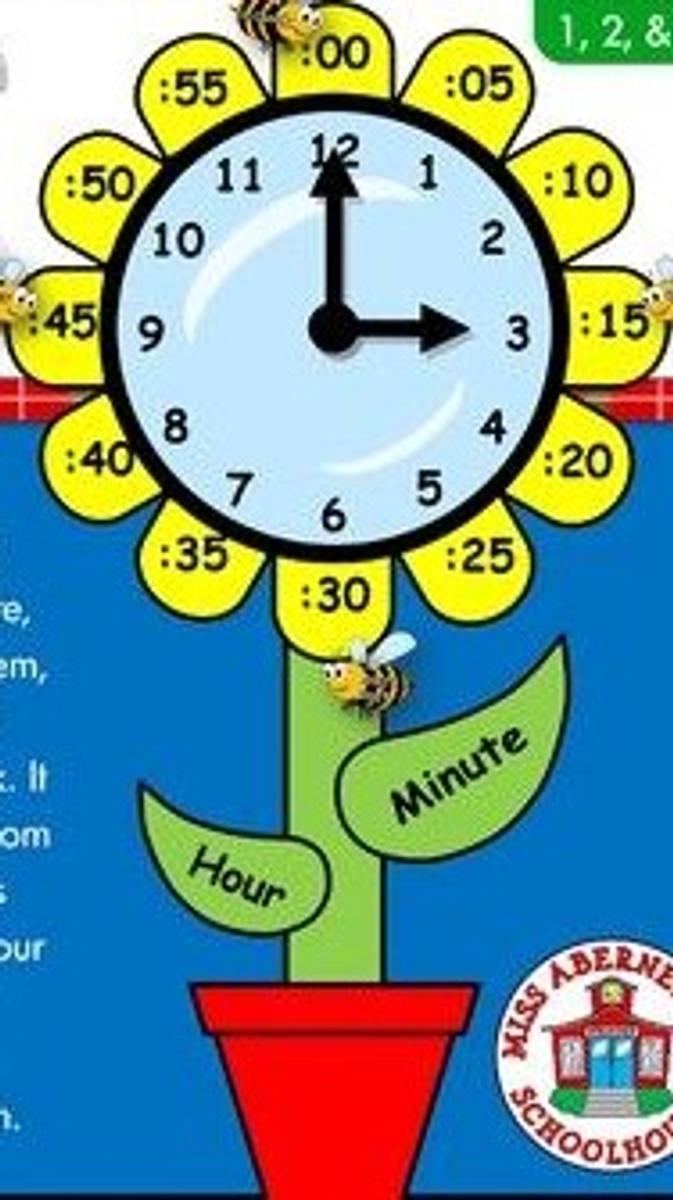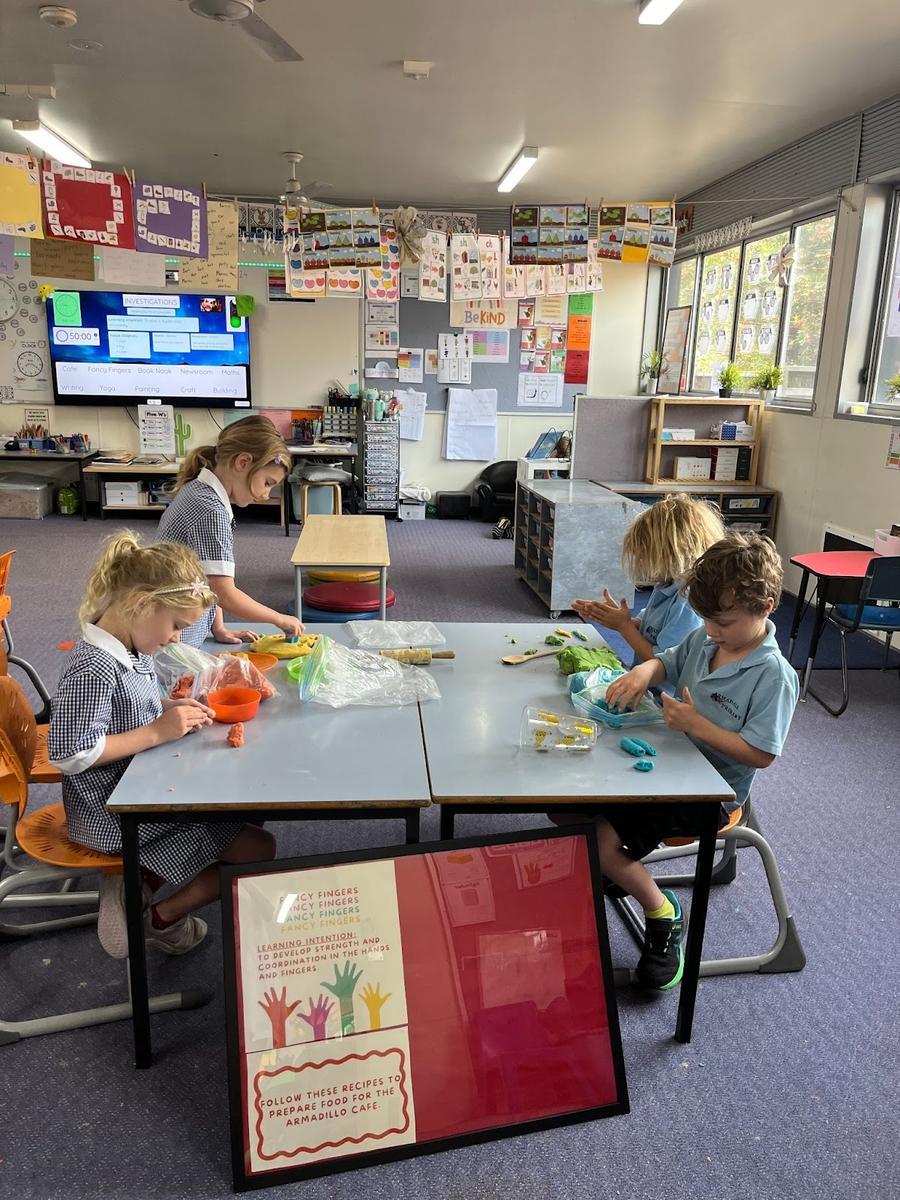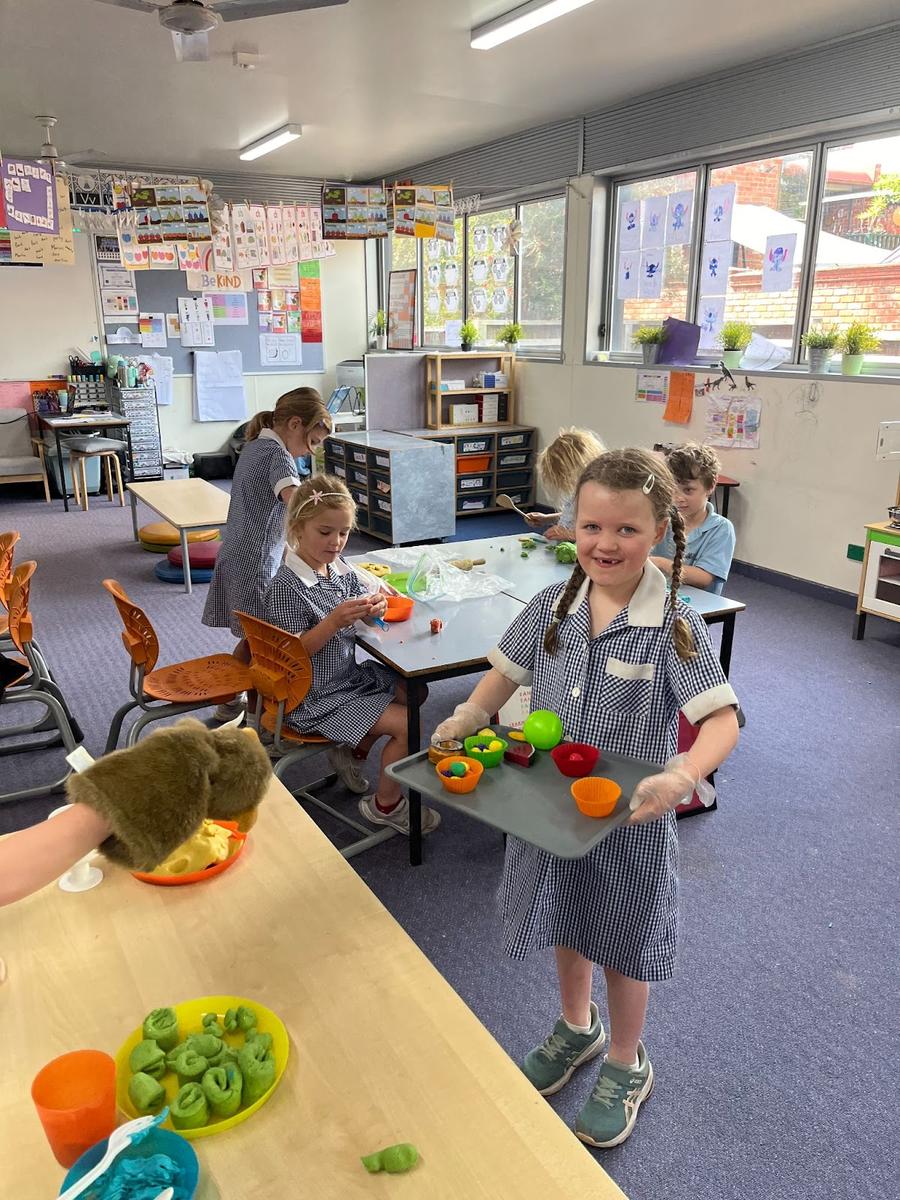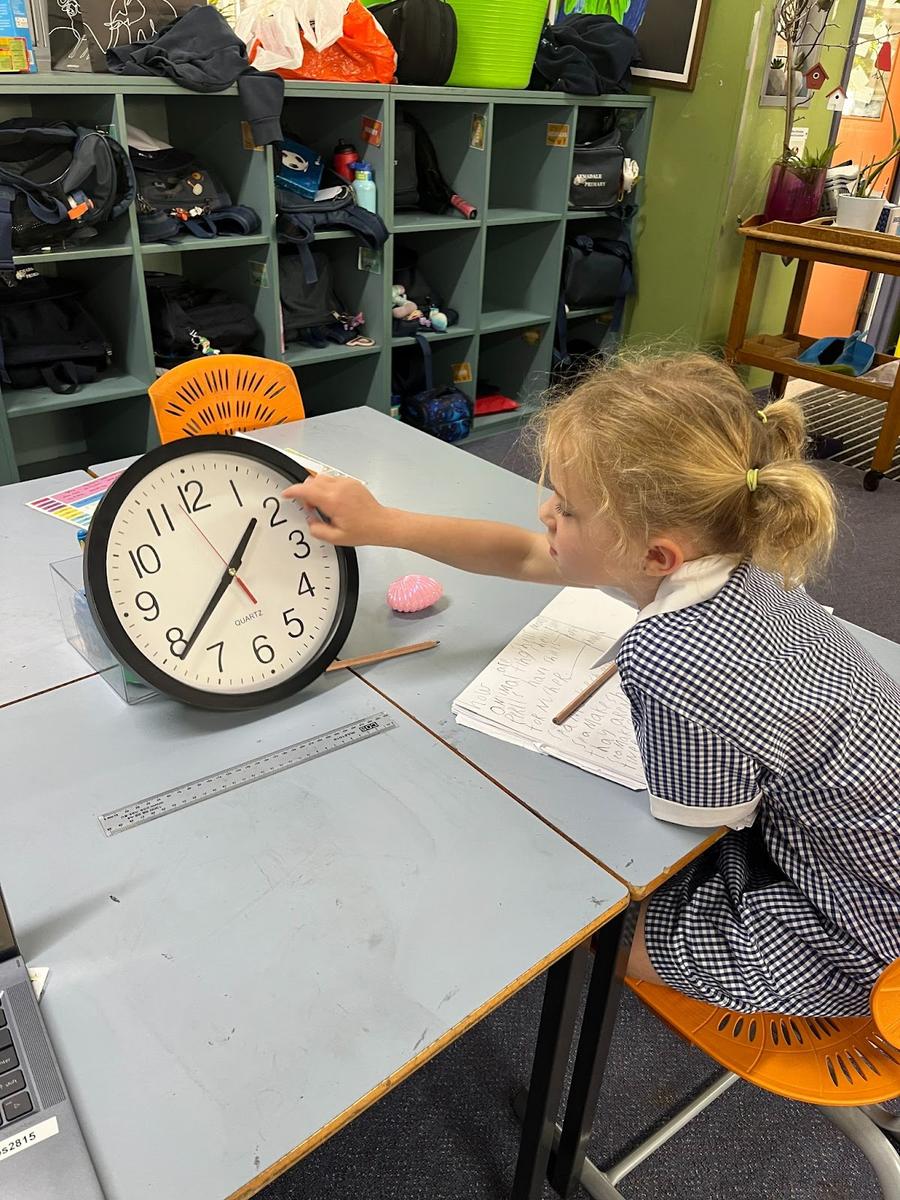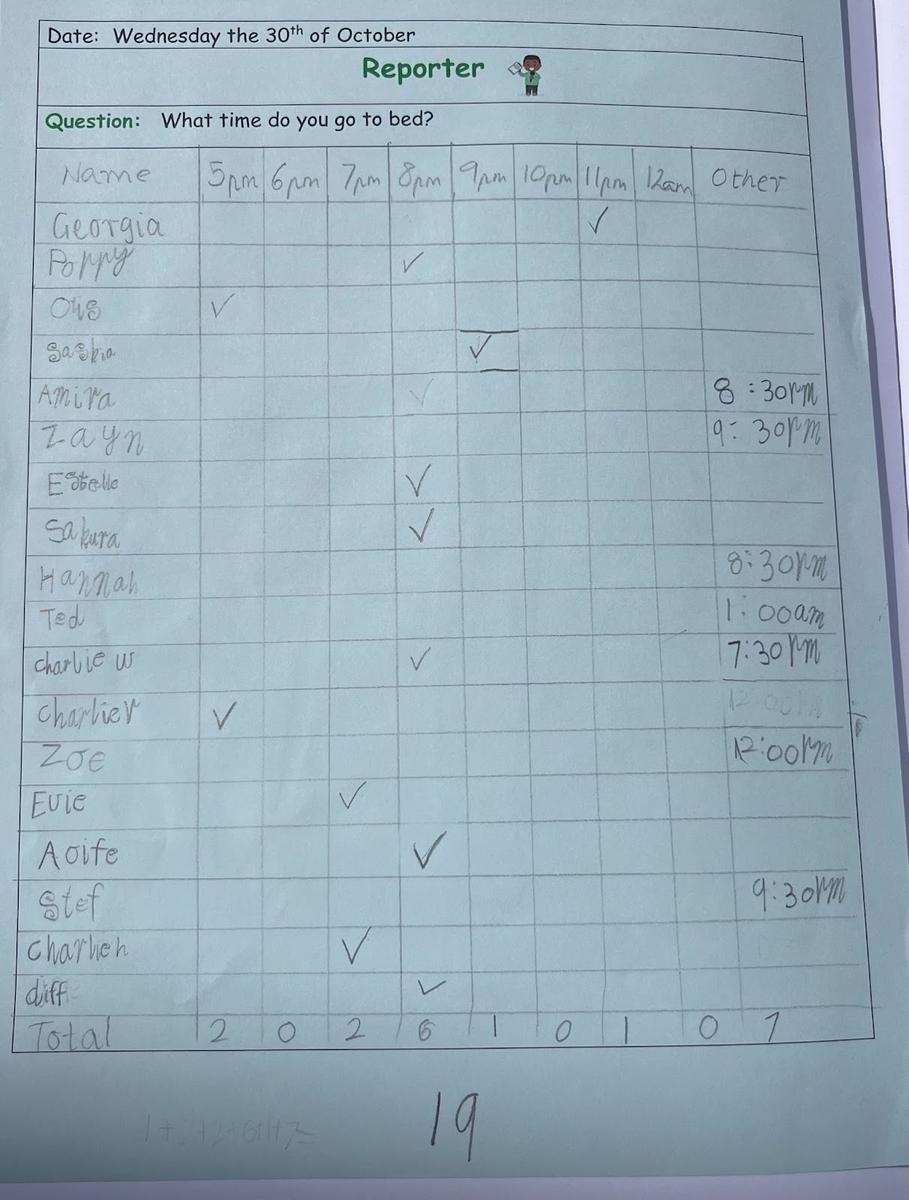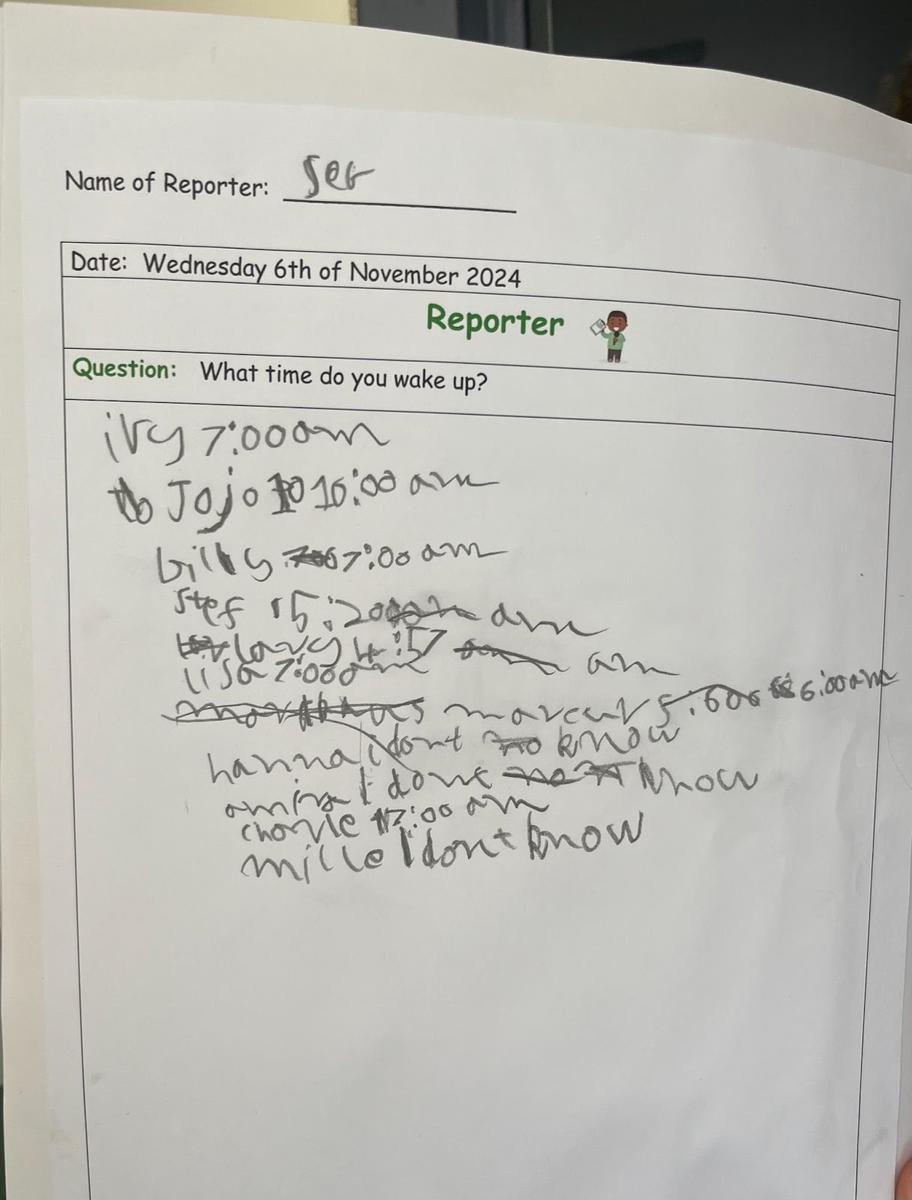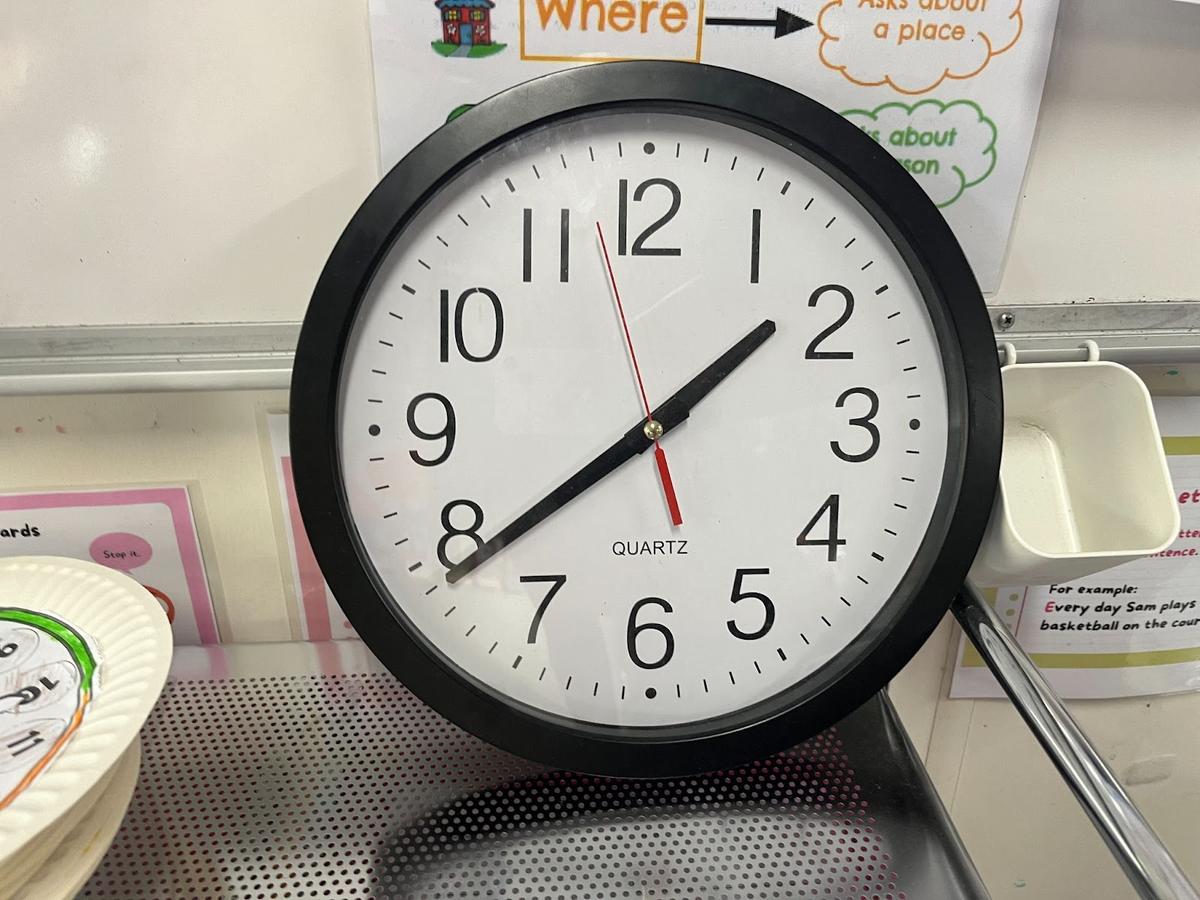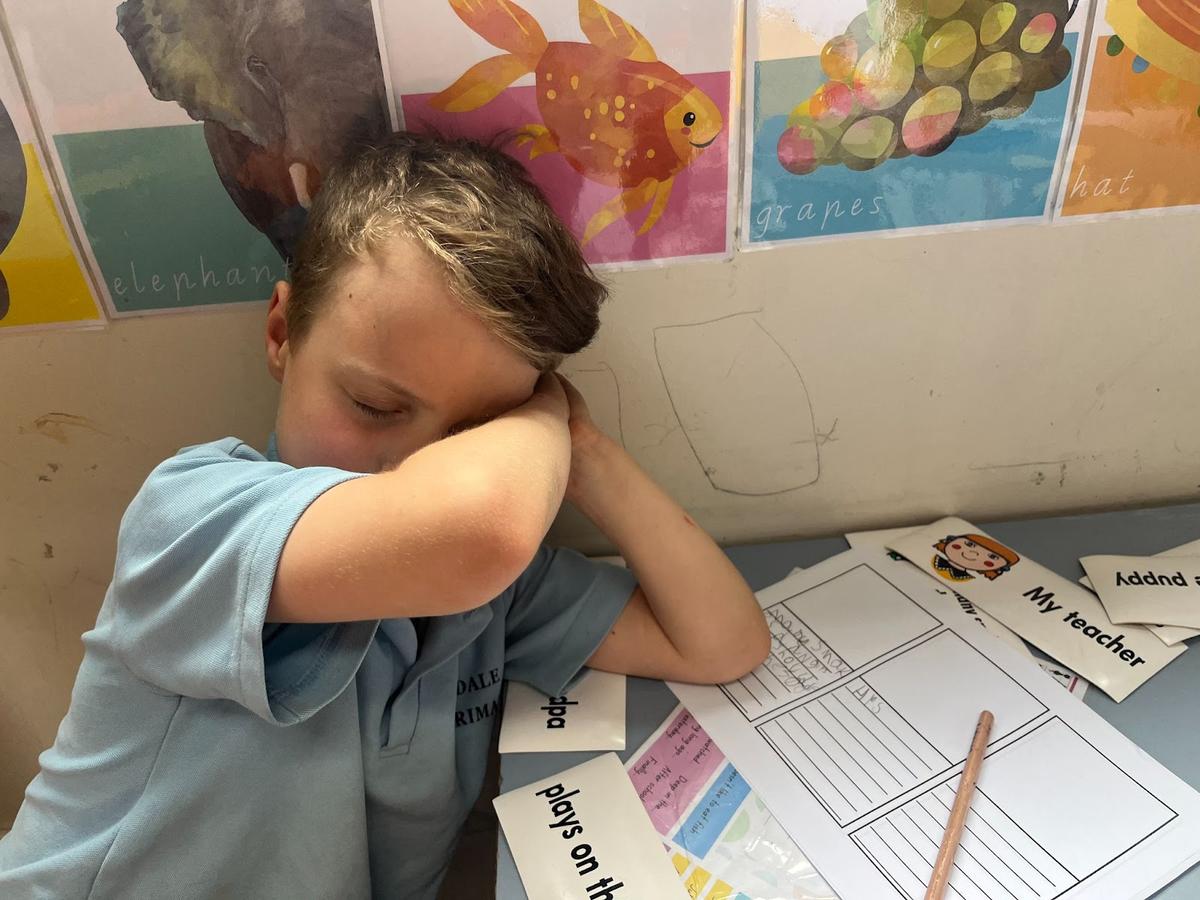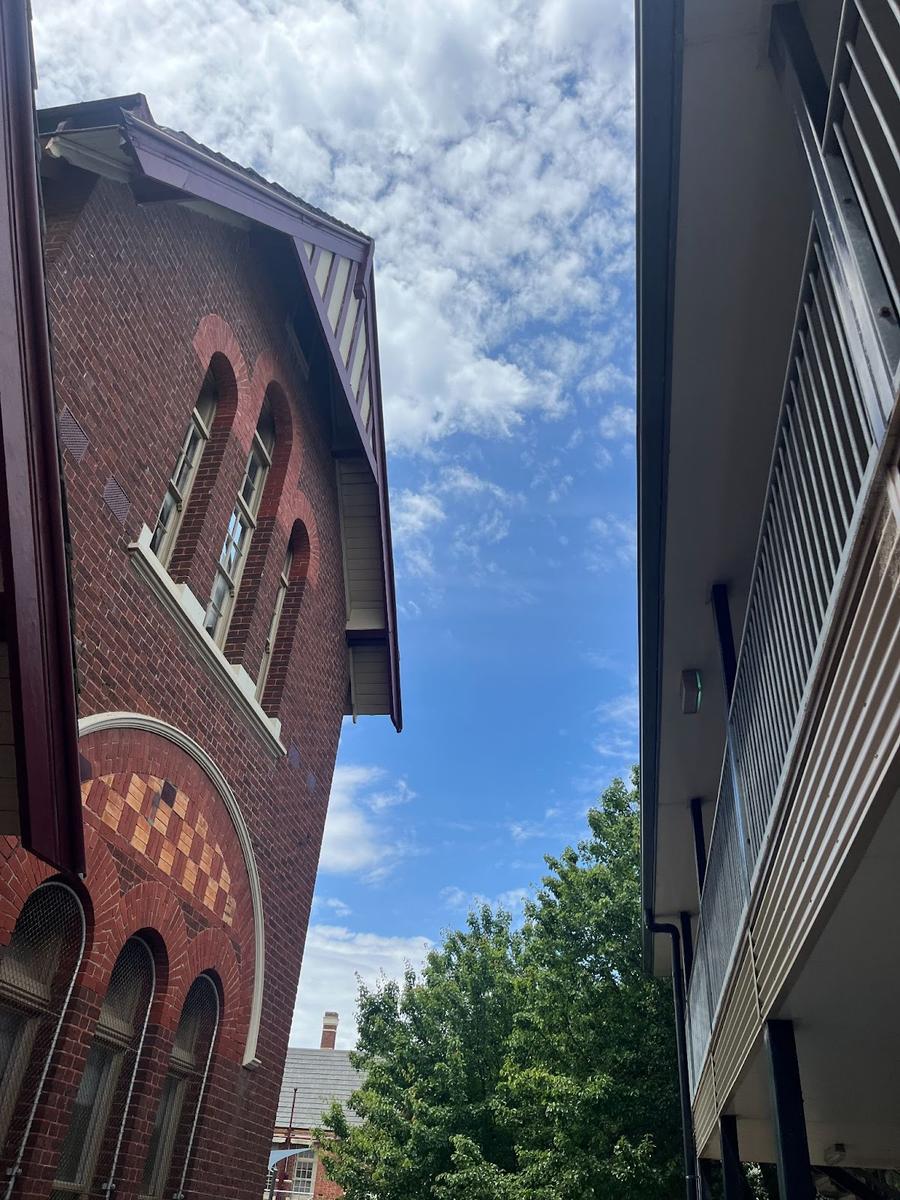Year 1 Bulletin
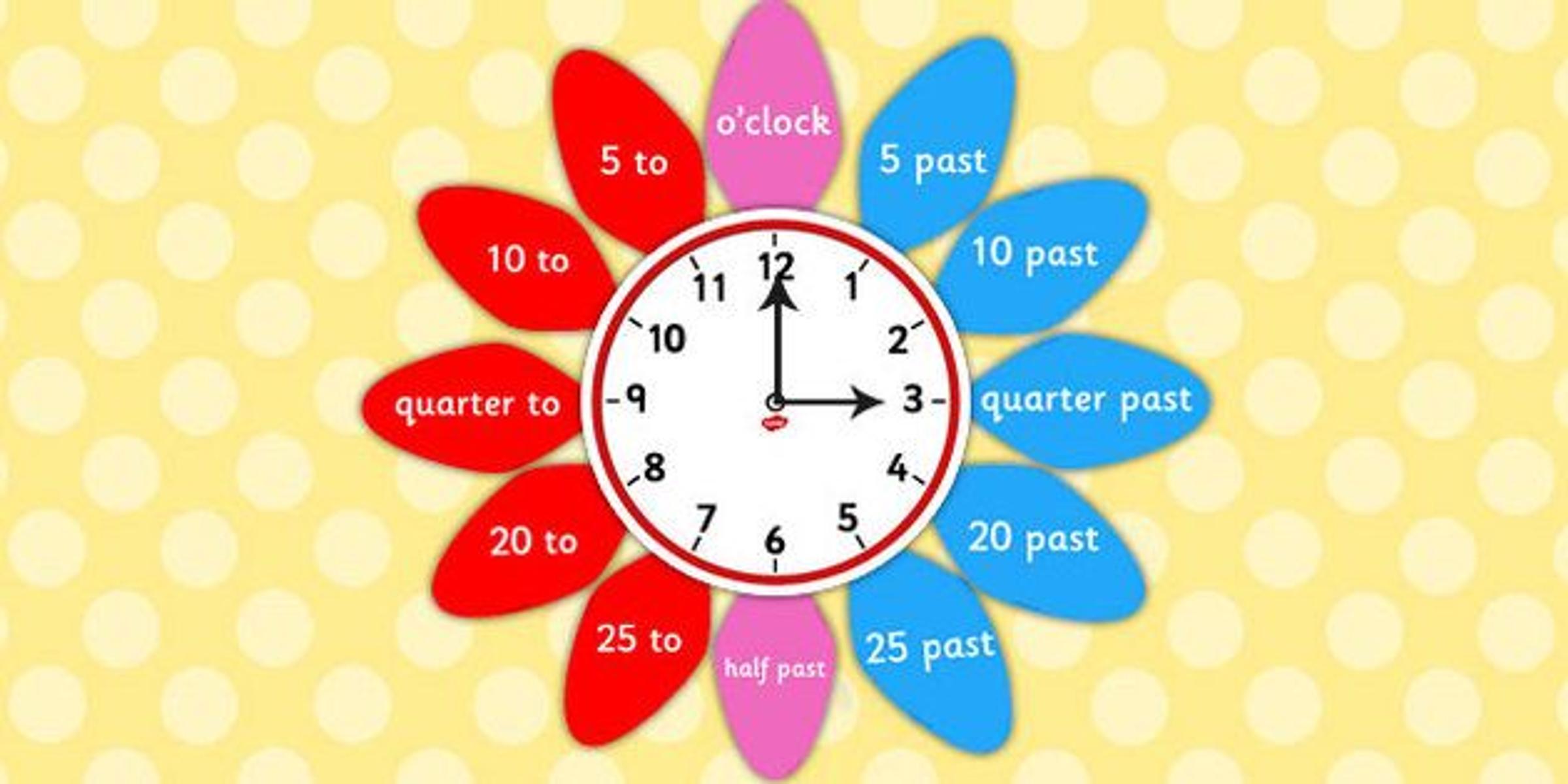
Learning Intention: To accurately read an analogue clock.
Learning Experience Overview: Each week in our Investigations we will begin our sessions with either a Maths, Literacy or Wellbeing focus. This session, our Maths focus was Time. Before our focus children shared their presentations, we spent 10 minutes tuning-in to our Time topic. After our tune-in, students were prompted to think about Time during their Investigations, and the different strategies they might use to help them read an analogue clock.
Whole
During our tune-in we looked at this flower clock. We compared the clock to the analogue clock displayed in our classroom and the digital clock on the teachers’ computer. We talked about why the minute hand is longer than the hour hand, as well as what the numbers on the clock represent when reading the hour, and how they read differently as minutes. During this time, students were following the teacher’s instructions to create times on their own mini clocks to the hour, half hour, quarter-past and quarter-to.
Prompts
- Think about Time during your investigations.
- What time is it? Can you read the analogue clock on the wall? What about the digital clock on the computer?
- How long does it take you to complete a certain task or activity? How can you record this information? Is that a long time? Does it feel like a long time? Why or why not?
Prompts
- Think about Time during your investigations.
- What time is it? Can you read the analogue clock on the wall? What about the digital clock on the computer?
- How long does it take you to complete a certain task or activity? How can you record this information? Is that a long time? Does it feel like a long time? Why or why not?
Small
After our tune-in, students scatter into groups to complete a range of independent learning tasks.
Investigations Stations:
Most students will participate in one of 10 stations, each focusing on a different skill and area of the curriculum. Here is our Fancy Fingers station, where students enhance their fine motor skills by following the recipes to construct food for the Armadale Cafe. The Armadale Cafe must record their customers’ orders, the time, as well as work with money and practise imaginative play in the form of customer service skills.
Focus students:
Each session teachers work for 15 minutes with the focus students to help address each childs’ specific needs in regard to the tune-in topic. This lesson, students were able to investigate their question in any way they chose, however, they were required to read and record the time of when they began their investigation and when they finished. It was during this time that the teacher worked one-on-one with them to read an analogue clock.
Reporter:
Each session there is one reporter who is given a clipboard and either a question or task which ties in with our tune-on topic. They are able to decide how they investigate and record their findings. This session, our reporter was asking students “What time do you go to bed?”.
Photographer:
Each session there is one photographer who is given an iPad and either a question or task which ties in with our tune-on topic. They are able to decide how they investigate and record their findings. This session, our reporter was taking pictures of things related to the nighttime.
Whole
After each Investigations session we come together to share what we have been working on. We ask students to share and reflect on their learning, and how our tune-in topic shaped or enhanced our learning.
This lesson, we talked about what time it was when we had finished and how it had changed since we first started. We discussed how this difference in time was shown on our clocks, and also in the sky and the world around us. As with any Investigations session, this discussion led to many big and interesting questions about the world.
How you might like to continue learning at home:
- Draw attention to the time or a clock where you can.
- Use language that involves time, for example, “We are going to eat dinner at 6 o'clock”.
- What time is it? How do you know?
- What time do you wake up? What time do you go to sleep? What time do you eat dinner?
- How long does it take you to complete these activities? Should you measure in seconds? Minutes? Hours?
- How else can you measure time?
From Stef, Georgia & Cliodhna 🙂
Year 1 Team
Stephanie.Lampard@education.vic.gov.au
georgia.kargiotis@education.vic.gov.au
cliodhna.osullivan@education.vic.gov.au

